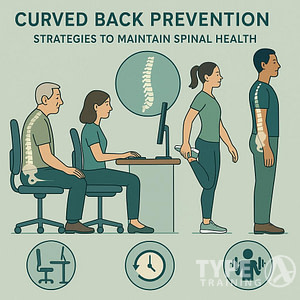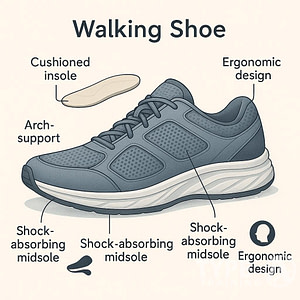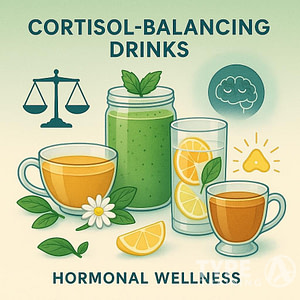Traveling across time zones can be an exciting adventure, but the accompanying jet lag can be a real hurdle. Jet lag symptoms, including fatigue and sleep disturbances, can undermine the enjoyment of your travels.
To help your body adjust more smoothly to the new time zone, consider strategies such as managing light exposure and staying hydrated.
By making just a few adjustments in your habits and routine, you can minimize the effects of travel fatigue and make the most of your journey.
Popular posts:
Understanding what jet lag is and why it occurs is half the battle, but practical measures go further in managing its effects.
Your internal clock struggles to keep up when you span time zones quickly, leading to the annoying symptoms that make you feel off-balance.
These simple strategies can ease your transition and help your body sync with the new local time.
Before you embark on your trip, planning can be a game-changer in reducing jet lag severity.
Adjusting sleep schedules gradually before departure and using apps designed to combat jet lag can prepare your system for the change.
Ensuring you drink enough water and sticking to a regular meal schedule while en route also makes a notable difference.
Understanding Jet Lag
Jet lag disrupts your body’s natural rhythms and can lead to various symptoms that affect both physical and mental health. Grasping how your internal clock works and recognizing the signs can be crucial.
Circadian Rhythms and Internal Clock
Your body operates on a circadian rhythm, a 24-hour cycle that regulates sleep-wake patterns.
This internal clock aligns with external cues like light and darkness. When you cross three or more time zones quickly, this synchronization is disturbed, causing jet lag.
Light exposure plays a pivotal role in regulating your circadian rhythm.
Exposure to natural light, especially during the morning, helps reset your internal clock. This adjustment is vital for adapting to new time zones and minimizing the effects of jet lag.
Symptoms of Jet Lag and Their Impact
Jet lag symptoms include sleep disturbances, daytime fatigue, and brain fog, affecting concentration and overall mental health.
These symptoms can lead to decreased productivity and impaired cognitive performance.
The impact of these symptoms can vary based on the number of time zones crossed and individual differences. Some might experience intense drowsiness, while others may face severe difficulty concentrating. Recognizing these symptoms helps in taking proactive steps to manage them effectively.
| Symptom | Impact |
|---|---|
| Sleep disturbances | Affects rest and recovery |
| Daytime fatigue | Decreases energy levels |
| Brain fog | Impairs decision-making and focus |
Preparation Strategies Before Travel
Anticipating changes in time zones is crucial. Making small alterations to your sleep schedule and maximizing natural light exposure can greatly help in adjusting to a new environment.
Adjusting Your Sleep Schedule
Gradually changing your sleep timing before travel aids in syncing with your destination’s time zone.
Start by adjusting your bedtime by one hour each day a few days prior to your departure. This gradual shift makes it easier for your body to acclimate.
Ensure good sleep hygiene by keeping your sleeping environment comfortable and free of distractions.
Consider using melatonin supplements if you struggle with sleep regulation. Consult your healthcare provider before use to determine appropriate dosage.
Utilizing a consistent schedule can aid in minimizing disruption to your circadian rhythm upon arrival.
Maximizing Exposure to Natural Light
Exposure to natural light plays a pivotal role in regulating your circadian rhythm, especially when dealing with jet lag.
Plan your time to maximize exposure to sunlight during your first few days at your destination. Morning light exposure is particularly beneficial as it signals your body’s clock to align with the new time zone.
Engage in outdoor activities, walks, or dining in sunlight to help your body adjust.
You can also use light therapy devices if natural sunlight is limited, particularly if you are traveling to places with shorter days.
These strategies help reset your internal clock, easing the transition into the new time zone.
Best Practices During the Flight
Implementing certain strategies during your flight can significantly help in mitigating the effects of jet lag.
Proper management of hydration, dietary choices, and light exposure plays an essential role in aligning your body clock with your destination’s time zone.
Hydration and Dietary Choices
Staying hydrated is crucial to counteracting the dehydrating effects of cabin air.
Drink plenty of water and avoid excessive consumption of coffee and alcohol, as these can lead to dehydration and disrupt sleep patterns.
Opt for light meals, as heavy or rich foods can burden your digestive system and impact overall sleep quality. Low sodium meals are preferable to help maintain fluid balance.
Keeping your body adequately hydrated and nourished without overindulging facilitates better bodily function and comfort during the journey.
Managing Sleep and Light Exposure
Managing your sleep and exposure to light during the flight can help your body adjust more rapidly to the new time zone.
Use an eye mask or noise-canceling headphones to create a restful environment if you plan to sleep.
Exposure to natural light at your destination helps set your internal clock.
If traveling east, try to sleep on the flight and seek morning light. Conversely, if traveling west, aim to stay awake longer and expose yourself to afternoon light on arrival.
These practices serve as zeitgebers, cues that help recalibrate your circadian rhythm.
Post-Arrival Adjustments
Upon reaching your destination, adjusting to the local time becomes crucial for minimizing jet lag. This involves synchronizing your activities with the local schedule and maintaining an environment conducive to rest.
Synchronizing with Local Time
Adapt your schedule to match the local time as soon as you land.
Exposure to natural light plays a central role in regulating your circadian rhythms. Morning sunlight is especially beneficial for those traveling eastward.
Consider engaging in light outdoor activities to help your body clock adjust more rapidly.
Limit daytime sleepiness by avoiding naps longer than 30 minutes. If you must nap, keep it short and within the early afternoon to prevent interfering with nighttime rest.
Use melatonin supplements or other sleep aids cautiously. While helpful, these should not replace aligning with the natural light-dark cycle.
Creating an Optimal Sleep Environment
The significance of a suitable sleep environment cannot be understated.
Keep the room dark, quiet, and at a comfortable temperature. Consider using earplugs, an eye mask, or a white noise machine to eliminate distractions.
| Element | Suggestions |
|---|---|
| Temperature | Room should be cool and comfortable |
| Light Exposure | Use blackout curtains or an eye mask |
| Sound | Earplugs or white noise machine |
Ensuring adequate hydration can also prevent discomfort and dehydration-induced disturbances.
Limit caffeine and alcohol near bedtime as they can disrupt sleep patterns. A balanced diet and regular exercise will further support your body’s adjustment to the new time zone.
Supplemental Aids and Considerations
When dealing with jet lag, certain aids and considerations can help manage sleep disruptions.
These include using melatonin supplements and sleep aids effectively. Both remedies have specific uses and considerations that may assist in overcoming sleep problems related to travel.
Utilizing Melatonin Supplements
Melatonin supplements can play a significant role in adjusting your internal clock to a new time zone, particularly if you’re experiencing sleep disruptions.
They can be most effective when taken before bedtime in the new time zone.
Melatonin helps regulate sleep cycles. It’s ideal for short-term use to combat temporary disturbances like jet lag.
| Time to Take | Dosage | Purpose |
|---|---|---|
| 30 min before bedtime | 0.5 to 5 mg | Adjusts circadian rhythm |
Consult with a healthcare provider before using melatonin, especially if you have existing sleep disorders or are pregnant. You should also avoid alcohol while taking melatonin, as it can interfere with its effectiveness.
Understanding the Use of Sleep Aids
For those struggling with significant sleep problems, over-the-counter or prescription sleep aids could provide short-term relief.
Sleeping pills like diphenhydramine can help initiate sleep, but they may carry risks of dependency or cause morning grogginess.
In some cases, naps during the day may alleviate tiredness, making it easier to adjust to the new time zone gradually.
Always use sleep aids as directed and preferably under guidance from a healthcare professional to prevent potential side effects or interactions with other medications.
It’s important to weigh the benefits and risks, especially if you have a history of insomnia or sleep disorders.












